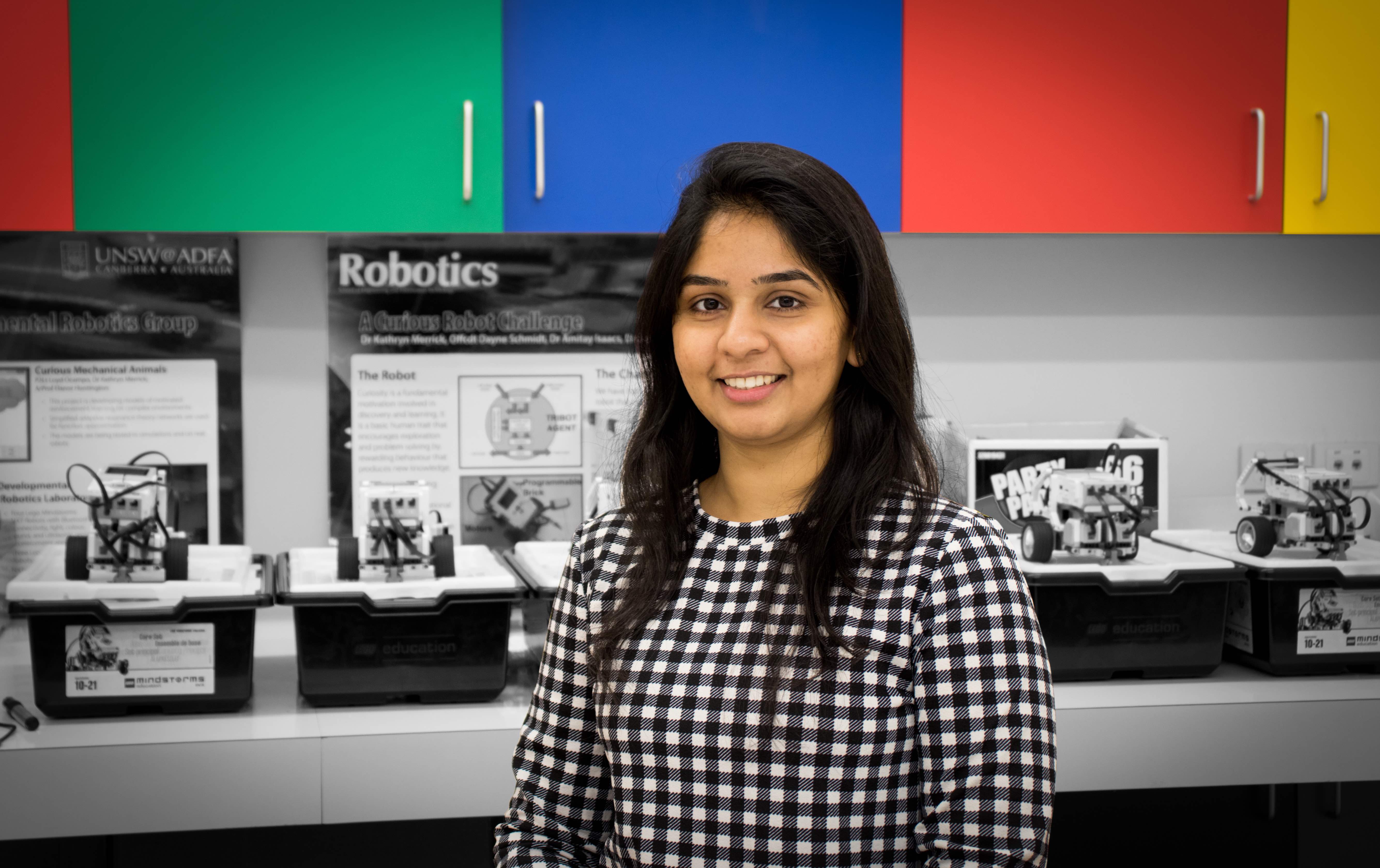UNSW Canberra PhD student to be inducted into the Future of Computing Academy
A UNSW Canberra PhD student has been selected to join the Association of Computing Machinery’s Future of Computing Academy.
A UNSW Canberra PhD student has been selected to join the Association of Computing Machinery’s Future of Computing Academy.

A UNSW Canberra PhD student has been selected to join the Association of Computing Machinery’s Future of Computing Academy.
Dilini Samarasinghe Widana Arachchige will be inducted into the Academy along with 35 other international researchers in New York City this December.
The Association of Computing Machinery (ACM) is the world’s largest educational and scientific computing society.
The Future of Computing Academy (FCA) was established to develop the next generation of ACM leaders and help shape the future direction of the ACM.
This elite group of young computer practitioners consists of just 54 members.
“The Academy is focused on building a platform for young computer professionals where they can harness collective actions to address the questions or challenges of the computing profession,” Dilini said.
“They’re working on initiatives in diversity and inclusion, as well as AI ethics, biases and computing for social good, among other projects.”
Dilini’s PhD supervisor, Associate Professor Michael Barlow said the ACM is a hugely influential player in the field of computer science.
“It is wonderful that Dilini’s work and potential as a leader is already being recognised at such an early stage of her academic career,” Associate Professor Barlow said.
“This is an opportunity for Dilini to have international impact beyond her research agenda. I am very proud for Dilini.”
Dilini’s research falls under the broad spectrum of artificial intelligence. She is primarily focused on multi-agent systems where a number of agents cooperate to perform tasks as a group. Her work explores the possibility of automating the behaviour of these systems to mitigate human bias and limitations that can appear in manually defining them.
“I try to address some of these issues by exploring ways for autonomous evolution of intelligent agent behaviours, specifically targeting multi-agent systems, with limited human intervention in the process,” Dilini said.
“I investigate grammatical evolution, an emergent branch of evolutionary computing as a mode to address the data bias and reusability limitations of other machine learning AI approaches. I’m currently working with simulations of multi-agent systems to autonomously generate the constituent agent behaviours to achieve a specified goal.”
This work has real-world applications in fields such as video games and simulation systems for entertainment, military training and healthcare, and intelligent drone networks.
Dilini’s contributions towards autonomous generation of such systems could provide unique insights for a future in multi-agent systems that can evolve themselves to model behaviours that are based on intelligent decisions.
Dilini has already represented the University overseas this year at the prestigious Diverse Intelligences Summer Institute in Scotland. The three-week multi-disciplinary workshop brought together some of the brightest young minds in intelligence related fields such as (but not limited to) anthropology, animal cognition, artificial intelligence, cognitive science and psychology.
“I haven’t had any experience with animal cognition or anthropology before, it was my first time working in such interdisciplinary projects and it was very inspiring,” Dilini said.
Dilini hopes she will learn just as much from her fellow members of the FCA, who she will meet at the induction in December.
The 36 new members were selected from hundreds of competitive applications from academic institutions, research labs and companies from across the globe. Dilini was the only new member selected from Australia.
Dilini will submit her PhD in 2020 and would like to continue working in academia upon graduation.